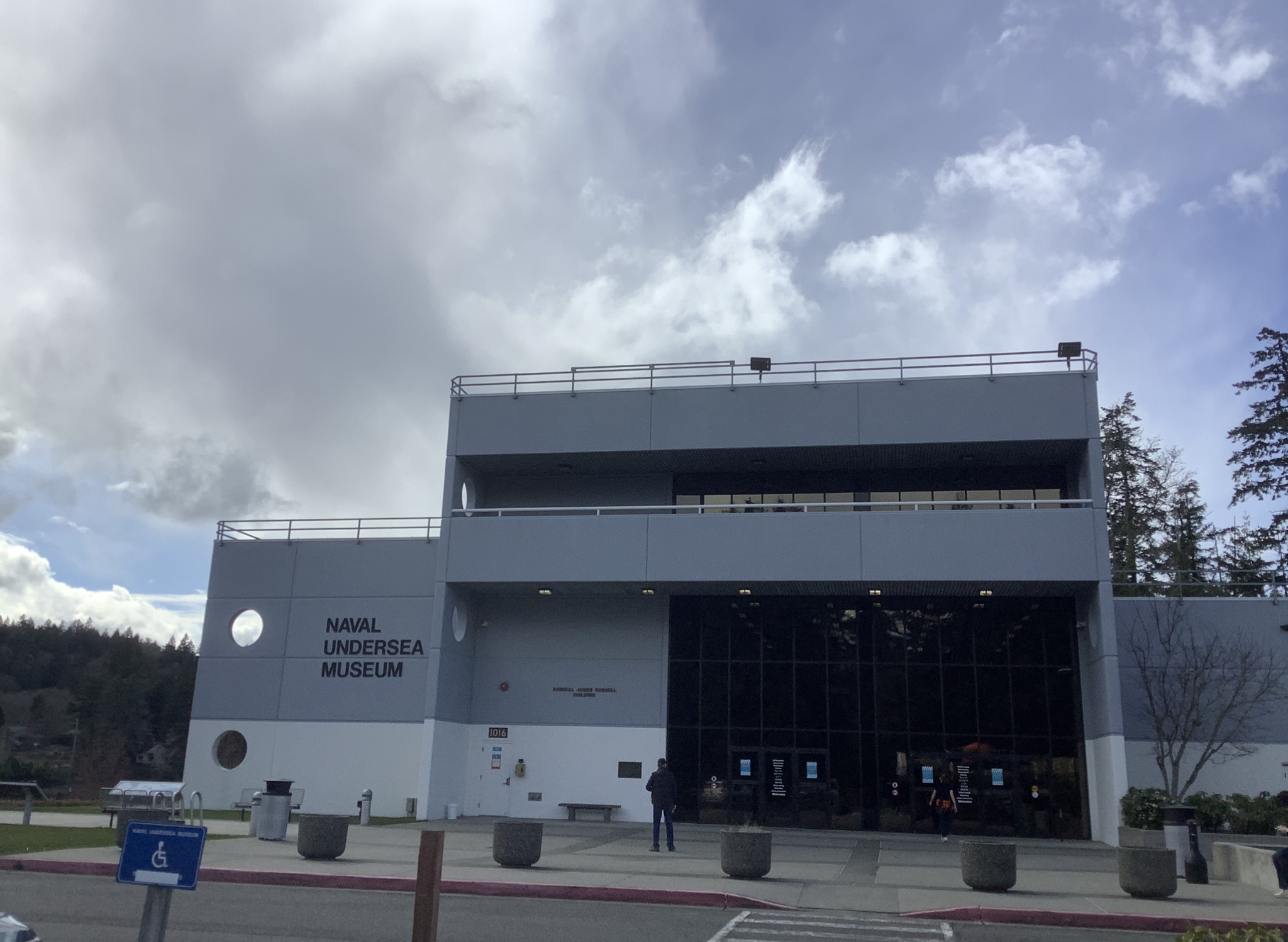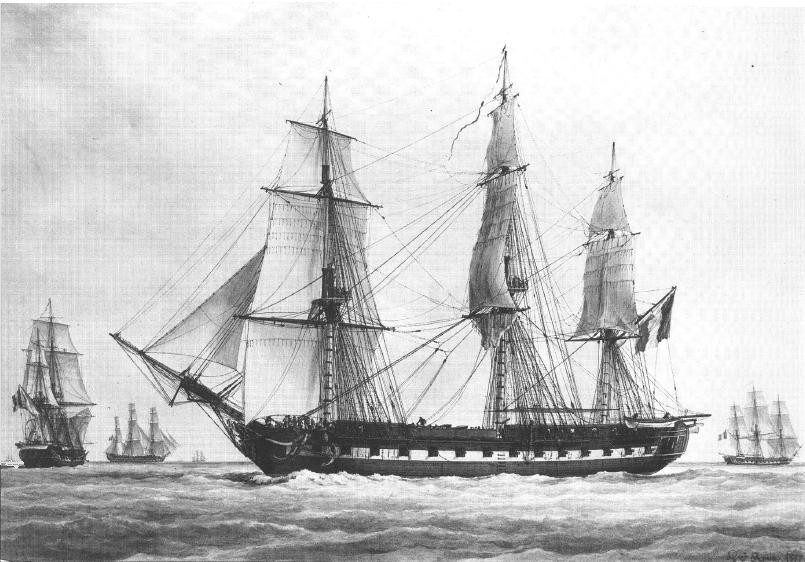|
Giovanni Luppis
Giovanni (Ivan) Biagio Luppis Freiherr von Rammer (27 August 1813 – 11 January 1875), sometimes also known by the Croatian name of Vukić, was an officer of the Austro-Hungarian Navy who headed a commission to develop the first prototypes of the self-propelled torpedo. Early years Giovanni Luppis (or Ivan Lupis) was born in the city of Rijeka (then Fiume) in 1813, which was at the time part of the Illyrian Provinces, but soon passed back to Austria. His parents were Ferdinando Carlo, nobleman of Poreč and Vis, and Giovanna Parich (''Parić'', ''Perić''), noble of Republic of Dubrovnik. Because of his mixed Italian-Croatian ancestry, his family was at different times also known as Vukić, a Croatianized variant of the name Lupis (both meaning "wolf"), and he himself is occasionally referred to as Ivan Vukić, especially by Croatians. In the city of Fiume, Giovanni Luppis's family has been powerful shipowners. Luppis attended a gymnasium in Fiume and the Collegio di ... [...More Info...] [...Related Items...] OR: [Wikipedia] [Google] [Baidu] |
Corpus Separatum (Fiume)
''Corpus separatum'' is a Latin term referring to a city or region which is given a special legal and political status different from its environment, but which falls short of being sovereign, or an independent city state. The term may refer to: * Corpus separatum (Jerusalem), the 1947 UN proposal for Jerusalem * Corpus separatum (Fiume), the historical status of Fiume (today's Rijeka, Croatia) between 1776 and 1918 * Pordenone, a ''corpus separatum'' between 1378 and 1514 * Novi Pazar, a ''corpus separatum'' between 1878 and 1912 Similar but different concepts include: * Enclave and exclave * Federal districts * Condominium (international law) * International city During the Austro-Hungarian rule in Bosnia and Herzegovina, Bosnia and Herzegovina was sometimes described as ''corpus separatum'' as well as condominium. See also * Brčko District of Bosnia and Herzegovina Bosnia and Herzegovina, sometimes known as Bosnia-Herzegovina and informally as Bosnia, is a co ... [...More Info...] [...Related Items...] OR: [Wikipedia] [Google] [Baidu] |
Apulia
Apulia ( ), also known by its Italian language, Italian name Puglia (), is a Regions of Italy, region of Italy, located in the Southern Italy, southern peninsular section of the country, bordering the Adriatic Sea to the east, the Strait of Otranto and Ionian Sea to the southeast and the Gulf of Taranto to the south. The region comprises , and has 3,874,166 inhabitants as of 2025. It is bordered by the other Italian regions of Molise to the north, Campania to the west, and Basilicata to the southwest. The regional capital is Bari. In ancient times, more precisely at the beginning of the first millennium BC, the region of Apulia was inhabited by the Iapygians, while during the 8th century BC its coastal areas were populated by Magna Graecia, ancient Greeks. Later, the region was conquered by the ancient Romans. It was then conquered by the Byzantine Empire, Byzantines, followed by the Normans, the Kingdom of Aragon, Aragonese and the Spanish Empire, Spanish. Subsequently, it bec ... [...More Info...] [...Related Items...] OR: [Wikipedia] [Google] [Baidu] |
Propeller
A propeller (often called a screw if on a ship or an airscrew if on an aircraft) is a device with a rotating hub and radiating blades that are set at a pitch to form a helical spiral which, when rotated, exerts linear thrust upon a working fluid such as water or air. Propellers are used to pump fluid through a pipe or duct, or to create thrust to propel a boat through water or an aircraft through air. The blades are shaped so that their rotational motion through the fluid causes a pressure difference between the two surfaces of the blade by Bernoulli's principle which exerts force on the fluid. Most marine propellers are screw propellers with helical blades rotating on a propeller shaft (ship), propeller shaft with an approximately horizontal axis. History Early developments The principle employed in using a screw propeller is derived from stern sculling. In sculling, a single blade is moved through an arc, from side to side taking care to keep presenting the blade to the wat ... [...More Info...] [...Related Items...] OR: [Wikipedia] [Google] [Baidu] |
Barone Giovanni Lupis Von Rammer
Barone may refer to: *Barone (surname), Italian and Latvian surname *Metamizole, by the trade name ''Barone'' * Bar One, sometimes spelt BarOne, a brand of South African chocolate. * BARON.E, Swiss musical pop duo See also * *Baron Baron is a rank of nobility or title of honour, often Hereditary title, hereditary, in various European countries, either current or historical. The female equivalent is baroness. Typically, the title denotes an aristocrat who ranks higher than ..., a title of nobility * Pizzo Barone, a mountain in the Swiss Alps {{Disambiguation ... [...More Info...] [...Related Items...] OR: [Wikipedia] [Google] [Baidu] |
Naval Undersea Museum
The United States Naval Undersea Museum is a naval museum located at Keyport, Washington. It is one of the 10 Navy museums that are operated by the Naval History & Heritage Command. It sits next to a branch of the Naval Undersea Warfare Center. History The Naval Undersea Museum Foundation is a 501(c)(3) non-profit Washington State corporation established in 1980 as a philanthropic organization. Through fund-raising efforts of the Foundation, the Naval Undersea Museum and Conference Center complex in Keyport, Washington, opened in 1995. The Naval Undersea Museum combines naval history, undersea technology, and marine science. This new building, filled with more than of exhibits, holds the largest collection of naval undersea history and science artifacts in the United States. The museum's research library contains more than 6,500 volumes that support the exhibits and provide extensive information on undersea history, science, and operations. It also holds a complete set of World ... [...More Info...] [...Related Items...] OR: [Wikipedia] [Google] [Baidu] |
La Voce Del Popolo
''La Voce del Popolo'' () is an Italian language, Italian-language daily newspaper published by ''EDIT'' (''EDizioni ITaliane'') in the Croatian city of Rijeka. History and profile ''La Voce del Popolo'' was first published in October 1944. The paper was supported by Josip Broz Tito and the Partisans (Yugoslavia), Yugoslav partisans, taking its name from a paper which had been printed in Fiume (as Rijeka was then called) from 1885 until its suppression following the city's annexation to the Italian Fascism, Fascist Kingdom of Italy (1861–1946), Kingdom of Italy in 1924. During the post-World War II period it became the newspaper of the sizeable Italy, Italian community in Yugoslavia. With the independence of Slovenia and Croatia, ''La Voce del Popolo'' has continued to campaign for the Italian communities of the area as well as being read by Italian tourists in the summer. A monthly supplement focusing on the Italians of Dalmatia has been recently added. The newspaper is a mem ... [...More Info...] [...Related Items...] OR: [Wikipedia] [Google] [Baidu] |
Captain (naval)
Captain is the name most often given in English-speaking navy, navies to the rank corresponding to command of the largest ships. The rank is equal to the army rank of colonel and air force rank of group captain. Equivalent ranks worldwide include ship-of-the-line captain (e.g. France, Argentina, Spain), captain of sea and war (e.g. Brazil, Portugal), captain at sea (e.g. Germany, Netherlands) and "Captain 1st rank, captain of the first rank" (Russia). Etiquette Any naval officer who commands a ship is addressed by naval custom as "captain" while aboard in command, regardless of their actual rank, even though technically an officer of below the rank of captain is more correctly titled the commanding officer, or C.O. Officers with the rank of captain travelling aboard a vessel they do not command should be addressed by their rank and name (e.g., "Captain Smith"), but they should not be referred to as "the captain" to avoid confusion with the vessel's captain. The naval rank sho ... [...More Info...] [...Related Items...] OR: [Wikipedia] [Google] [Baidu] |
Frigate
A frigate () is a type of warship. In different eras, the roles and capabilities of ships classified as frigates have varied. The name frigate in the 17th to early 18th centuries was given to any full-rigged ship built for speed and maneuverability, intended to be used in scouting, escort and patrol roles. The term was applied loosely to ships varying greatly in design. In the second quarter of the 18th century, what is now generally regarded as the 'true frigate' was developed in France. This type of vessel was characterised by possessing only one armed deck, with an unarmed deck below it used for berthing the crew. Late in the 19th century (British and French prototypes were constructed in 1858), a type of powerful ironclad warships was developed, and because they had a single gun deck, the term 'frigate' was used to describe them. Later developments in ironclad ships rendered the 'frigate' designation obsolete and the term fell out of favour. During the Second World War ... [...More Info...] [...Related Items...] OR: [Wikipedia] [Google] [Baidu] |
Venice
Venice ( ; ; , formerly ) is a city in northeastern Italy and the capital of the Veneto Regions of Italy, region. It is built on a group of 118 islands that are separated by expanses of open water and by canals; portions of the city are linked by 438 bridges. The islands are in the shallow Venetian Lagoon, an enclosed bay lying between the mouths of the Po River, Po and the Piave River, Piave rivers (more exactly between the Brenta (river), Brenta and the Sile (river), Sile). As of 2025, 249,466 people resided in greater Venice or the Comune of Venice, of whom about 51,000 live in the historical island city of Venice (''centro storico'') and the rest on the mainland (''terraferma''). Together with the cities of Padua, Italy, Padua and Treviso, Italy, Treviso, Venice is included in the Padua-Treviso-Venice Metropolitan Area (PATREVE), which is considered a statistical metropolitan area, with a total population of 2.6 million. The name is derived from the ancient Adr ... [...More Info...] [...Related Items...] OR: [Wikipedia] [Google] [Baidu] |
Gymnasium (school)
''Gymnasium'' (and Gymnasium (school)#By country, variations of the word) is a term in various European languages for a secondary school that prepares students for higher education at a university. It is comparable to the US English term ''University-preparatory school, preparatory high school'' or the British term ''grammar school''. Before the 20th century, the gymnasium system was a widespread feature of educational systems throughout many European countries. The word (), from Greek () 'naked' or 'nude', was first used in Ancient Greece, in the sense of a place for both physical and intellectual education of young men. The latter meaning of a place of intellectual education persisted in many European languages (including Albanian language, Albanian, Bulgarian language, Bulgarian, Czech language, Czech, Dutch language, Dutch, Estonian language, Estonian, Greek language, Greek, German language, German, Hungarian language, Hungarian, Macedonian language, Macedonian, Montene ... [...More Info...] [...Related Items...] OR: [Wikipedia] [Google] [Baidu] |






